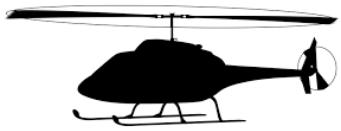2022-03-08
The Daily Sceptic hosts an article by Dr James Alexander (Assistant Professor in the Department of Political Science at Bilkent University in Turkey) which, whilst prompted by the outbreak of hostilities in the Ukraine, is nevertheless more of a reflective discourse on the nature of wars past and present.
He makes a number of great points but I suggest that he doesn't fully engage with his topic. That is not to criticise at all - he has done a great job of setting the current imbroglio into some much needed context - but I would suggest some significant omissions which need to be covered.
But first, read his article.
"The war in Ukraine is a strange war, because it is old-fashioned. It is the classic European form of war, whereby one sovereign state clashes with another sovereign state over some disputed territory"
Is that true?
Not according to Mr Putin, who should know something about it. His explicit objectives were to stop the murderous bombardment of the russophile residents of the Donbass (in effect since 2014 in defiance of the Minsk agreement), to halt the eastward expansion of NATO, and to remove the "Nazi" criminal elements currently in power in the Ukraine - and specifically not to occupy territory, but to demilitarise it.
We could liken it to sending in the police to raid a warehouse to arrest a gang of drug dealers, confiscate their loot and bring the miscreants to justice. There might be a shoot-out in the warehouse but after the raid is over the warehouse is returned to its rightful owner and the miscreants are brought to justice.
In the absence of an untainted world police force (discounting the UN since they appear to be financed by the same criminals who financed those in the Ukraine) it fell to friendly neighbour Russia to pick up the role of the police and perform the task.
Dr Alexander may not accept Mr Putin's version of his motivation but he can hardly ignore it altogether without comment.
This war as described by Mr Putin is if you like yet another kind of war - a policing war dealing with a criminal political class. The West has claimed such in the past ostensibly with the various "wars on terror" so beloved of American politicians. These (in theory) were not wars for territory, they were wars to displace dictators (Gaddafi, Sadam Hussein etc) and to initiate better governance.
Some would say they were actually wars to control oil supplies and to prevent loss of control over world financial matters.
Likewise some would say that Mr Putin's professed reasons are just excuses to subdue their freedom-loving neighbour and rebuild the Soviet Union.
Time will tell the truth of it, but I note that meanwhile Russian forces have been dismantling Ukrainian bio-labs that were allegedly financed by the USA (much like that Institute of Virology in Wuhan, China ... ). Some think that these labs are set up in the Ukraine because their activities would be illegal in the USA.
"... we in the West have generally fought only colonial or post-colonial wars or pseudo-wars: Korea, Suez, Vietnam, the Falklands, Iraq, Afghanistan, Libya"
A pseudo-war? Which of these qualify as such? The death-toll in all of these (except Suez and the Falklands) was enormous. Lumping them together as "post-colonial" has little meaning.
The Korean War seemed to be started by North Korea invading the South (is there a parallel here with Russia invading Ukraine? I have no idea).
Suez was a straight bid to retain control over one of the world's primary (and most lucrative) trade routes.
The US war in Vietnam seems to have been initiated by a criminal false flag event in the Gulf of Tonkin - a reported attack on the US navy that allegedly never in fact took place. I don't know the motivation but we do know the result. Prior to that event the French had withdrawn from Indo-china following their defeat at Dien Bien Phu - maybe the US thought it could reverse that defeat.
The Falklands War was precipitated by the invasion by the Argentinians, seemingly emboldened by the perceived weakness of British defences which were indeed quickly overcome. The inhabitants being overwhelmingly British were brought back under British rule by Margaret Thatcher's Task Force and our reputation as a push-over was thereby quashed, but in scale duration motivation and numbers killed this was in no meaningful way comparable to the other wars mentioned.
Iraq, Afghanistan and Libya can somewhat loosely all be bracketed under the banner of the War on Terror, declared after the 9/11 "false flag" attack on the World Trade Centre towers. I say "false flag" because there is abundant evidence that the impact of a couple of aircraft could not have caused the destruction witnessed on that day.
So, in conclusion, whilst Dr Alexander's article is interesting it is also incomplete in its analysis.
If we simply accept that his thesis is sufficient to explain what is going on in the Ukraine, then we may be missing the bigger picture by a country mile.



